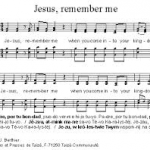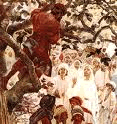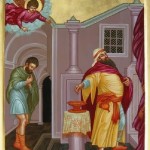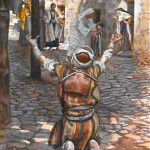Fourth Sunday in Ordinary Time – Cycle C
Reflecting on Luke 4:21-30
I know a fascinating secret about today’s section from Luke. This insight comes from the work of Bargil Pixner, osb., an archaeologist who excavated some of the more famous portions of ancient Israel.
The city of Nazareth (never mentioned in the Old Testament) was very probably founded only a hundred years before the birth of Jesus, and was purposely named Nazareth from the Hebrew word nazir, which means set apart. This means that the grandchildren of those who settled that little town―who had probably emigrated from Babylon, that place of exile― saw themselves as set apart. Why? Because they were descended from King David, and they expected that the Messiah would come from their ranks.
Doesn’t that make much of the odd behavior of the people from Jesus’ home town make sense? Throughout all four of the gospels there is a backdrop of hostility and disappointment when Jesus returns to Nazareth. He is the famous miracle worker, the charismatic leader who has drawn twelve devoted apostles to his work, he is royalty, for heaven’s sake, and yet what has he done?
Has he mobilized an army, like David would have, to expel the loathsome Romans? Has he marched on Jerusalem and staged a coup to take over the palace? Most important, has he assigned his own family members as generals in his army and presidents of his parliament?
What good is finally having the Messiah (anointed one) come from your home town if his idea of anointed is that he bring good news to the poor and restore sight to the blind? What kind of glorious revolution is that?
No wonder they tried to throw him off a cliff.
Have you ever relinquished your expectations of family members and honored who they really are?







